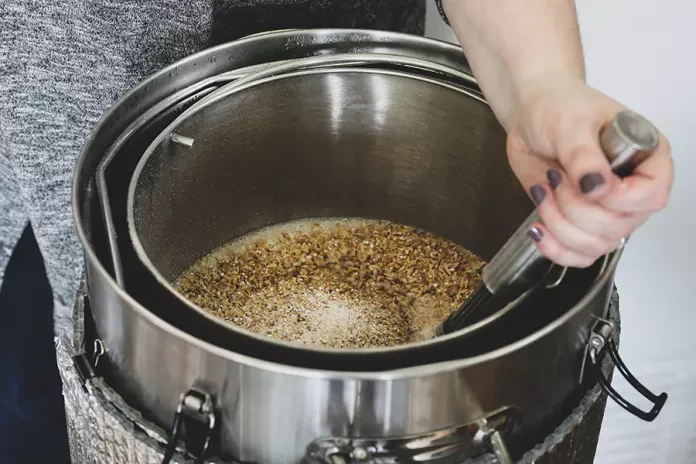The Popularity of Home Brewing
Home brewing has gained immense popularity all over the world. This happened for various reasons - from the dissatisfaction of consumers of this drink with factory beer samples, to the opportunity to create their own beer according to a unique recipe. An important role in the development of home brewing was played by the fact that it is absolutely legal in most countries of the world, since beer is a drink with a very low alcohol content, and everyone has the right to prepare it for their own consumption. And although economically brewing beer at home is not very profitable, but the result will not make you regret the money spent and the efforts made. The industrial production of beer, like any other industrial production, makes it possible to produce cheap, high-quality and almost identical beer without any individuality. Home brewing, on the contrary, allows you to brew completely different types of beer, changing the technology, raw material base and other parameters. Beer created at home can change its properties not only from changes in technology, but also from the specific conditions in which it was brewed, from the degree of exposure and other factors - this is a real live beer that lives its own life.
Grain Beer or Malt Concentrate?
First, you need to decide on what technology you will use to brew beer. For the homebrewer, there are two fundamentally different approaches to brewing beer - the classic grain beer brewing technology and the use of hopped malt concentrates. Grain beer brewing involves all stages of brewing - grinding malt, brewing malt to obtain sugars, filtering the mash, brewing beer wort with the addition of hops and other ingredients, as well as adding yeast and subsequent fermentation of the wort and obtaining finished home-brewed beer. The option using hopped malt concentrates is much simpler - the finished concentrate is diluted with water and, after adding yeast, is fermented to produce beer. In both cases, truly live homemade beer is obtained, but when using concentrates, the process of homebrewing is much simpler. The only disadvantage of brewing beer from malt concentrates is the inability to influence the taste and aroma properties of homemade beer - they are predetermined by the manufacturer of the hopped malt concentrate.
Equipment for Home Brewing
You can brew beer without even having any equipment at all, except for a large pot, a thermometer and the desire to get your own beer. By heating the mash and controlling the temperature, as well as stirring the mash almost continuously and then filtering it in any convenient way, a fairly good beer wort can be brewed. By boiling the wort with hops, cooling it and adding yeast, and then putting it under a water seal, after a while you will get homemade beer made by yourself. But such a process of brewing beer is quite physically difficult and provides poor control over the parameters of the produced beer.
In order to start brewing beer at home, a minimum of equipment is enough. But, as skills improve, the homebrewer may need many different tools to make it easier to brew beer at home. For the comfortable brewing of home beer, you will need a malt mash filtration system, a wort circulation system to maintain its optimal temperature, a system for rapid cooling of beer wort, and possibly various automation options that allow you to control time and temperature, which greatly facilitates the brewing of beer at home. For beer fermentation, novice brewers usually use cheap and convenient plastic containers of 30-35 liters with water seals, which, nevertheless, do an excellent job.
Returning to the brewing of beer from malt extracts, we can say that this will require a minimum of equipment, since the main stages of beer brewing are passed by the manufacturer in the manufacture of malt concentrate, which contains all the substances necessary for making beer, except for water and yeast. Therefore, for such a variant of home brewing, it is enough to have only containers for beer fermentation.
How Long Can You Keep Homemade Beer?
One of the myths about homemade beer is that it has a short shelf life because it is not pasteurized. But if the equipment for fermentation and bottling is kept clean, this problem does not actually exist - homemade beer is stored for a long time, while acquiring a more interesting taste than freshly brewed beer. If homemade and industrial beer spoils quickly, then a mistake was made at some stage of its production, and wild yeast or some other foreign impurity got into the beer, which caused it to turn sour. If a homebrewer follows the technology of brewing beer and regularly disinfects his equipment, his homebrew will be stored for many months without deterioration in its taste properties.
